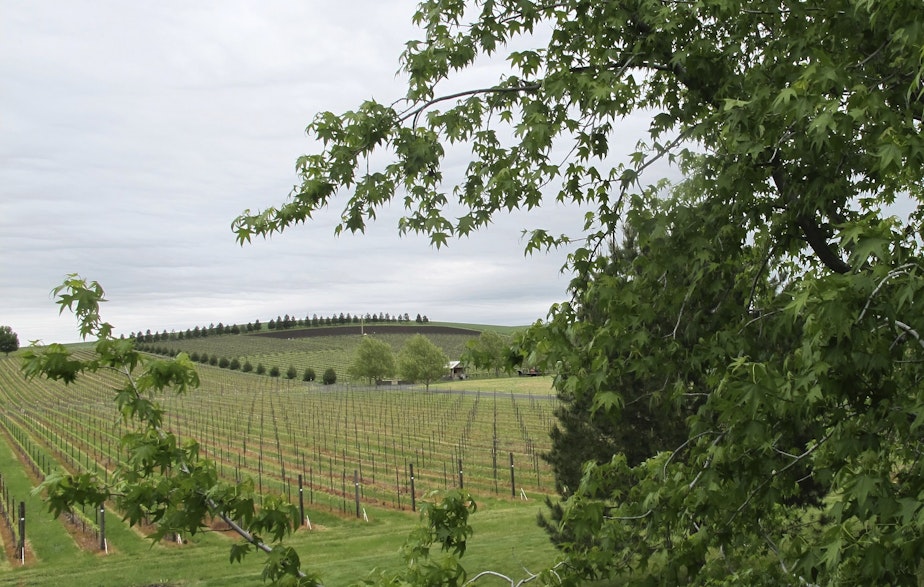Inmates will soon grow wine grapes, hops at the Washington State Penitentiary

There will soon be a vineyard and hopyard inside the Washington State Penitentiary in Walla Walla.
It’ll be one of the few vineyards inside a penitentiary in the world.
Inmates will do all the farming.
Jeremy Petty says he and his fiancee will lease ground inside the penitentiary and hire inmates to plant, care for, and harvest wine grapes and hops.
They’ll plant half an acre of hops and half an acre of wine grapes every year, so that each group of inmates that comes into the program learns all the skills necessary to manage a vineyard or hopyard: from laying irrigation lines to building trellises to managing and maintaining the canopy.
“After about the third year, everybody that comes into that program should be able to do a start to finish of how to plant a vineyard, put it together, grow the crop, and harvest,” Petty says.
Sponsored
Petty says he’s hoping to work with other farmers to help find jobs for the inmates after they’re released, and he says he's likely to hire some of them for his own hopyard, or the vineyards he manages in the Walla Walla Valley.
“My goal is to help them get placed once they are out,” he says.
He envisions talking to other farmers, telling them, “Hey, you know, these guys coming out, they have all this knowledge. Can they go right into working on your farm?”
Petty says he hopes the job skills will help the inmates stay out of prison once they’re released.
He says a vineyard inside a penitentiary in Italy has successfully reduced recidivism.
Sponsored
Petty says he also hopes the venture will be profitable, so he can keep growing the program.
If all goes as planned, the inmates will till the ground and plant a cover crop this fall, and they’ll plant the first acre of grapes and hops in the spring.
It’ll be a few more years after that before customers can buy penitentiary-raised wine and beer.

